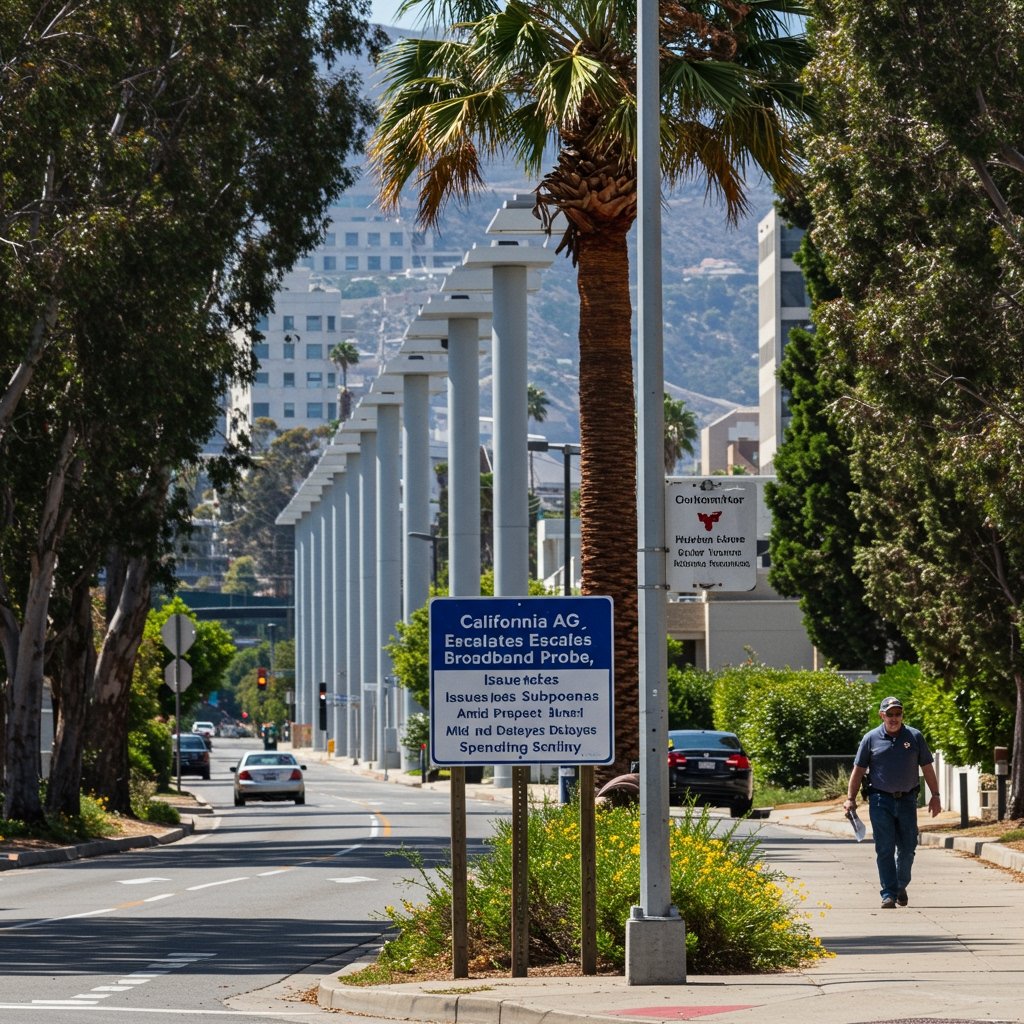California Attorney General Launches Major Escalation in Broadband Rollout Investigation
SACRAMENTO, CA – The office of California Attorney General Rob Bonta has significantly intensified its investigation into the persistent delays and substantial cost overruns plaguing the state’s ambitious plan to build a statewide broadband network, known as Golden State Connect. In a move signaling a deeper inquiry into the project’s execution and oversight, the Attorney General’s office confirmed on February 24, 2025, that it had issued subpoenas to key individuals and entities involved in the rollout.
Subpoenas were reportedly served on executives at several private companies contracted for various aspects of the infrastructure build-out, as well as on key personnel within the California Public Utilities Commission (CPUC). This action marks a critical juncture in the state’s effort to understand why a project intended to connect all Californians to reliable internet access by 2030 has encountered significant hurdles, leaving many underserved communities still without adequate connectivity despite vast sums of public money being allocated.
The Scope of the Expanding Probe
The Attorney General’s investigation, now clearly focused and backed by the compulsory power of subpoenas, is zeroing in on several critical areas. These include, but are not limited to, the contracting practices employed in selecting vendors and awarding work for the Golden State Connect project, the timeline adherence of these contractors and state agencies involved, and crucially, the allocation and expenditure of over $6 billion in state and federal funds earmarked for this initiative. This massive funding pool was specifically designated to bridge the long-standing digital divide, ensuring that Californians, regardless of their geographic location or socioeconomic status, have access to high-speed internet necessary for modern life, education, work, and healthcare.
The probe seeks to uncover potential mismanagement, inefficiency, or other factors that have contributed to the project’s lagging schedule and ballooning costs. The decision to subpoena both corporate executives and state commission officials suggests a broad inquiry encompassing both the private sector’s performance and the state regulatory body’s oversight responsibilities.
Background: The Golden State Connect Initiative
The Golden State Connect program represents California’s commitment to universal broadband access, recognizing that reliable internet is no longer a luxury but a necessity. With a target completion date of 2030, the project aims to build a robust, open-access middle-mile network across the state, facilitating last-mile connections to homes and businesses, particularly in rural and low-income areas previously deemed uneconomical for private providers to serve. The initial allocation of over $6 billion from both state budgets and federal infrastructure programs underscored the state’s seriousness and the perceived urgency of closing the digital gap.
However, the project has faced criticism and scrutiny almost since its inception. Reports have consistently highlighted delays in environmental reviews, permitting, and construction, as well as challenges in coordinating between multiple state agencies and private contractors. These delays translate directly into continued hardship for communities that remain disconnected, impacting students’ ability to participate in remote learning, limiting access to telehealth services, and hindering economic opportunities.
Why the AG’s Involvement Escalated
The Attorney General’s office previously signaled its interest in the project’s challenges, but the issuance of subpoenas signifies a formal and forceful escalation. Such actions are typically taken when investigators require specific documents, data, or testimony that have not been voluntarily provided or are needed to substantiate preliminary findings. The move suggests that the Attorney General’s office has found sufficient grounds to suspect potential issues that warrant a full legal investigation, potentially involving violations of state laws related to contracting, public funds, or regulatory oversight.
The investigation follows numerous reports from legislative analysts, state auditors, and news organizations detailing the significant shortfalls in the project’s progress relative to its ambitious goals and considerable budget. These reports have fueled public and political pressure to identify the root causes of the delays and ensure accountability for the effective use of taxpayer dollars and federal grants.
Implications for the Future
The outcome of the Attorney General’s probe could have far-reaching consequences for the Golden State Connect project and the future of broadband deployment in California. Depending on the findings, it could lead to changes in project management, revisions of contracts, potential legal action against involved parties, or reforms within state agencies responsible for infrastructure oversight. The investigation’s focus on the CPUC is particularly notable, given its central role in regulating utilities and overseeing aspects of the state’s broadband strategy.
For the underserved communities awaiting connectivity, the investigation, while potentially delaying progress in the short term due to increased scrutiny and potential disruptions, ultimately aims to ensure that the project is completed efficiently and effectively, finally delivering the promised digital access. The pressure is now squarely on the subpoenaed companies and individuals, as well as the state entities involved, to cooperate fully and transparently with the Attorney General’s investigation.
The coming months are likely to see significant activity as the Attorney General’s office reviews the subpoenaed materials and potentially conducts further interviews. The findings of this high-profile investigation will be crucial in determining not only what went wrong with the initial rollout but also in shaping strategies to prevent similar issues in future large-scale public infrastructure projects in California.


















